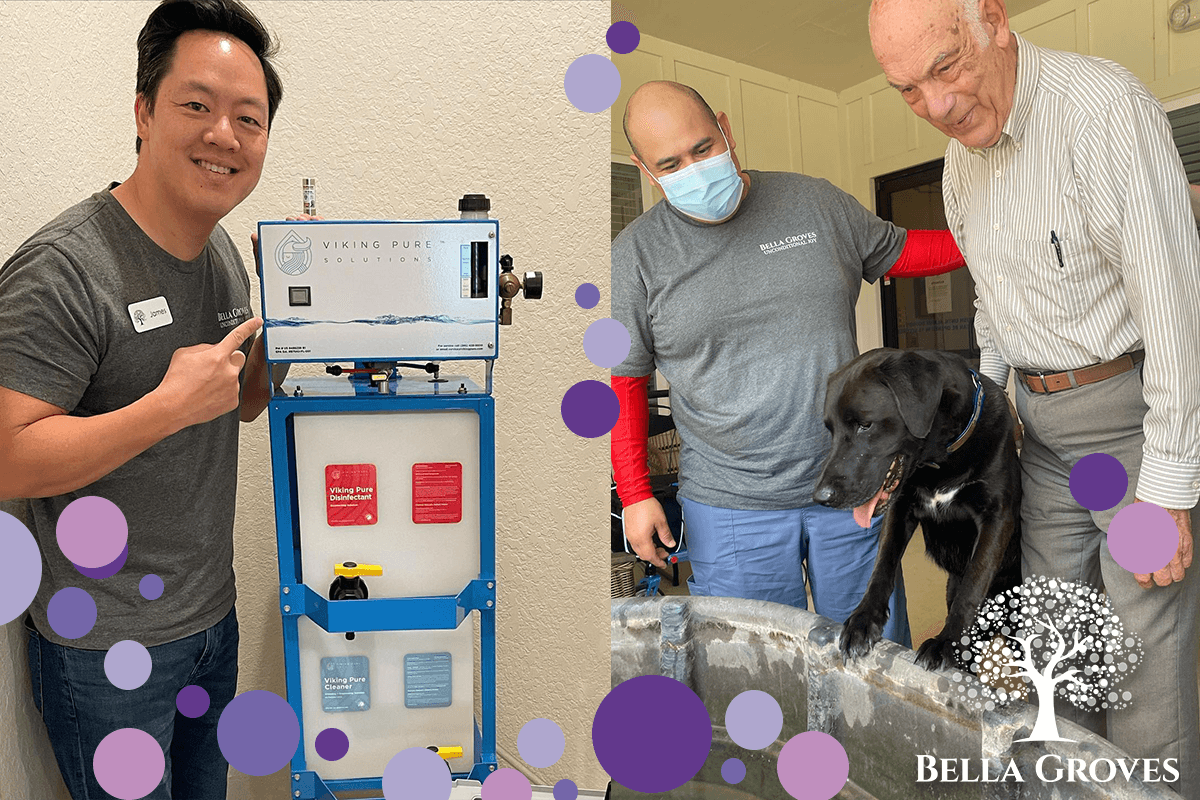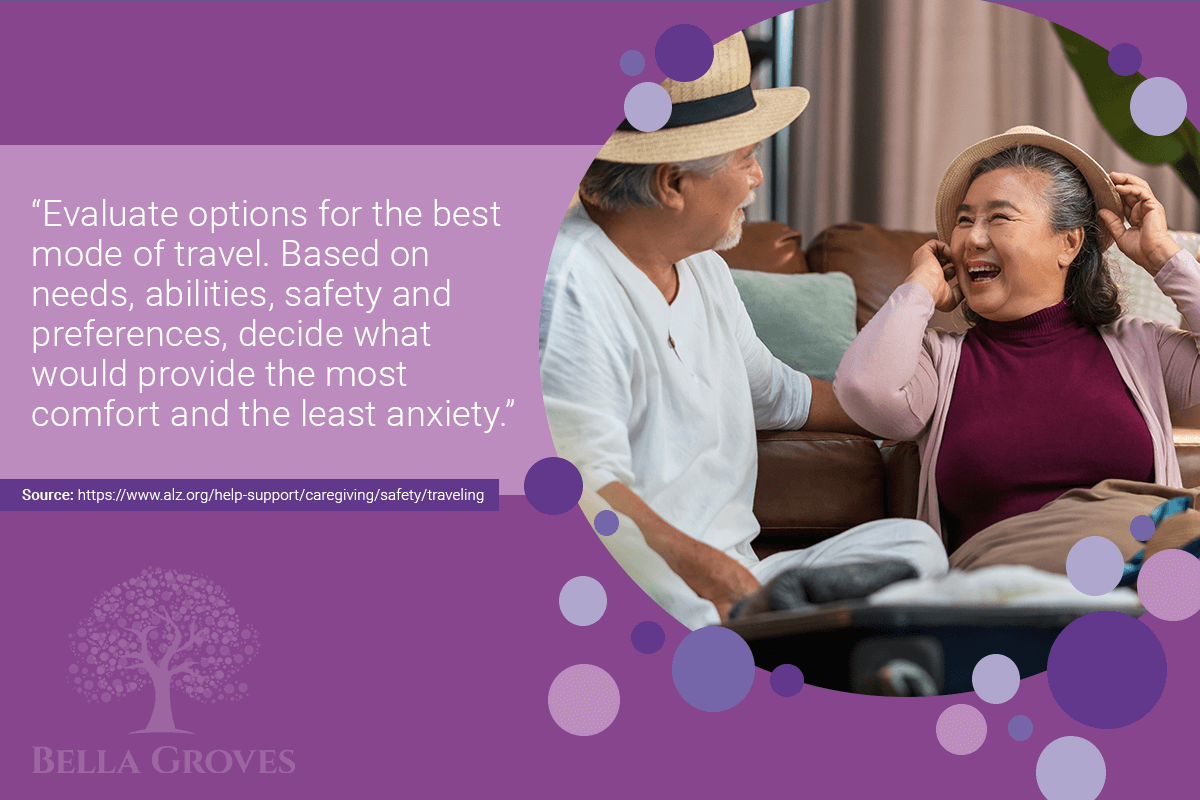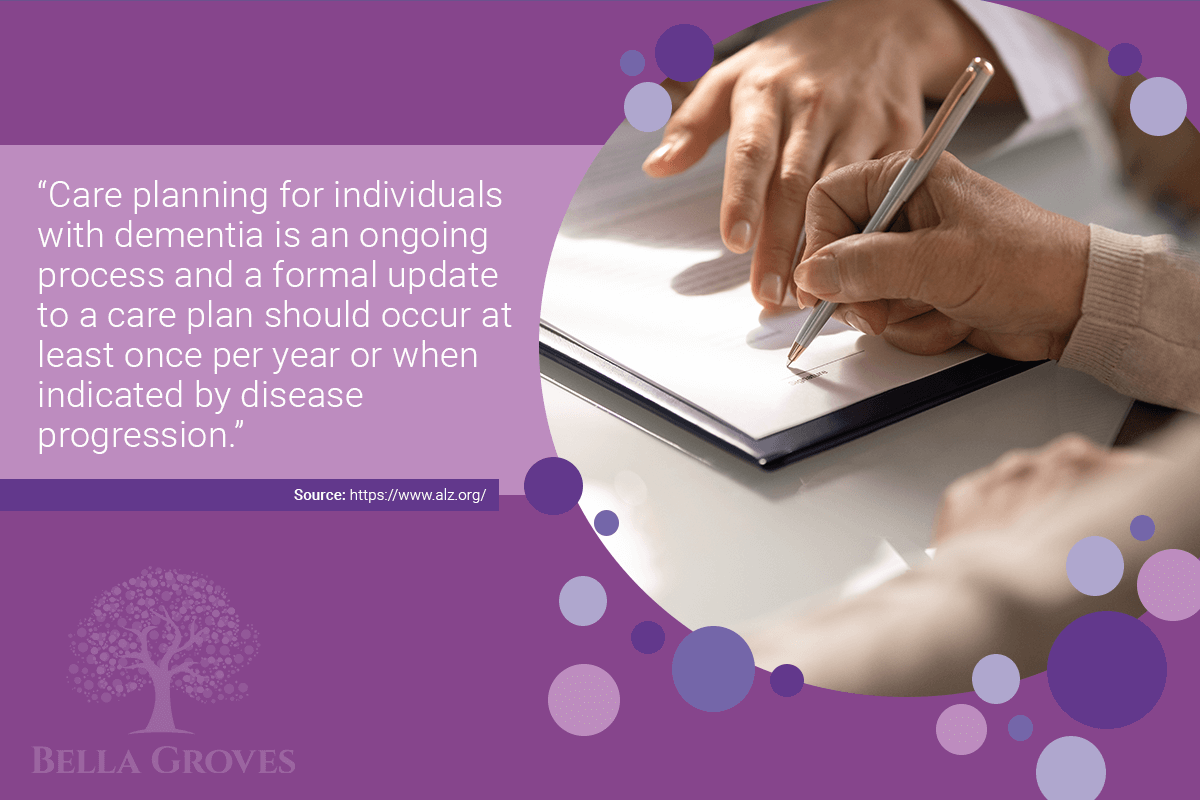
How Bella Groves is Changing the Way We Care
When James Lee, the CEO and co-founder of Bella Groves, visited Margaret in her long-term nursing facility, he was met with a shocking greeting. “I’m mistreated here,” Margaret said to James. “They don’t listen to me. I’m left alone in my room because they don’t want to deal with me.”
Abuse in memory care facilities is a very significant claim. However, James was informed that Margaret “frequently says the word ‘abuse’, which we take seriously, but there’s none of that going on.” The word makes people in the senior housing industry clam up, and people immediately jump to disprove it versus understand what the resident means.
Bella Groves has centered our purpose and mission around helping individuals and families from day one of their dementia journey. Individuals like Margaret are just an example of the way that memory care facilities need to meet people where they are and provide the care, compassion, and support they deserve and need in order to find success and experience unconditional joy.
Prioritizing Knowledge & Dementia Education
Margaret is living with Lewy body Dementia (LBD), a form of dementia that can cause visual hallucinations, paranoia, and unpredictable changes in how the brain functions rationally. In fact, symptoms distinguish LBD from other forms of dementia. Changes in concentration, attention, ideas, judgment and the sudden arising of hallucinations and paranoia are common in cases of LBD and help doctors to distinguish between Alzheimer’s.
Another common characteristic of LBD is the delayed arisal of memory problems, unlike in cases of Alzheimer’s disease, in which memory loss and cognitive decline are typically the first symptoms.
All of these details regarding the symptoms and inner mechanisms of this type of dementia are crucial to understanding how a person living with LBD differs from a person living with Alzheimer’s (or other form of dementia). And by understanding these differences and nuances, you can provide more comprehensive and compassionate care.
In memory care facilities, there is a lack of training and education on how to care for those living with dementia. At Bella Groves, all team members are immersed in a 13-week dementia training as part of their onboarding and retention criteria. Team members who “graduate” from this training can expect to receive ongoing learning support through our proprietary dementia methodology and curriculum called Go With The F.L.O.W.™.
Setting Ourselves Apart from the Rest
When Margaret told James that she was being mistreated in her facility, James immediately could see that she is a person who is vulnerable in ways that few can fathom. James observed no forms of abuse during his time at Margaret’s facility; he would have been obliged to report it, but could see no indications of neglect or mistreatment.
For example, a Certified Nursing Assistant (CNA) came into Margaret’s room to take her to lunch.
“Time for lunch, Ms. Margaret,” she stated cheerfully, as she proceeded to move Margaret’s legs into her wheelchair footrests. “You have to keep your legs up. These scrapes on your legs are because you let your legs dangle off of the chair.” The CNA proceeded to carefully place a pillow beneath Margaret’s legs in order to protect them and hold them into place. She then noticed that one of Margaret’s shoes had fallen off and proceeded to pick up Margaret’s shoe to place it back onto her foot.
“These shoes hurt my feet,” Margaret stated.
“You have to keep your shoes on – otherwise, you slip, and we don’t want you to fall again, right?”
James understood immediately that what he was witnessing was by no means any form of abuse or mistreatment. The CNA did her job of delivering care, ensuring safety, and taking Margaret to where she needed to be within the facility. James could relate to the CNA’s position, understanding that she probably had 20 other patients to help, and wanted Margaret to safely get to lunch without any problems.
However, some key things did bother James. For instance, Margaret wasn’t asked how she was feeling or how her day had gone so far – she was only instructed and attended to. She wasn’t greeted in a personal way – only addressed. She was never met eye to eye – she was hovered over.
At the core of Bella Groves’ care mission is to ensure that every individual receives the kindness, support, and dignity they deserve. Dementia care is a collaborative experience, and a person living with dementia is at the center of that experience. But too often, care is viewed as a list of tasks a care partner has to do for a person living with dementia instead of with them.
This becomes especially true in memory care facilities where staff have too many residents to care for and not enough time in their shift. Our team at Bella Groves has seen the impact that a lack of staffing has on resident care, so we implement a lower than average resident to caregiver ratio (1:4 vs. 1:8) to ensure this never happens in our community.
Our Bella Groves care partners also encourage resident involvement in their care tasks and activities rather than simply doing tasks for them. For example, instead of just going through the motions of helping a resident get dressed, we walk them through the process and offer cues to keep them engaged and involved. We also personalize care by getting information on daily routines and adjusting their care tasks to fit their routine, not our routine.
Before Margaret was wheeled out of the room, James knelt beside her, squeezed her hand gently, looked her in the eyes and smiled. Her waited for her smile, and then asked, “would you like for me to come see you again?” “Yes, I would love that, James,” she said without looking at his name tag.
The drive to care for a person living with dementia is admirable. However, the way we care has a long way to go. At Bella Groves, our motto of “Love > Dementia” helps us to remember our values, which guide us in everything we do. We provide individuals, families, and care partners with dementia education and tools to help them better understand the complexities of dementia – as well as the opportunities they can provide to develop stronger relationships.
Our Bulverde memory care facility is a place you have to feel to believe, so we invite you to stop by and take a tour. You’ll know the difference right away.


